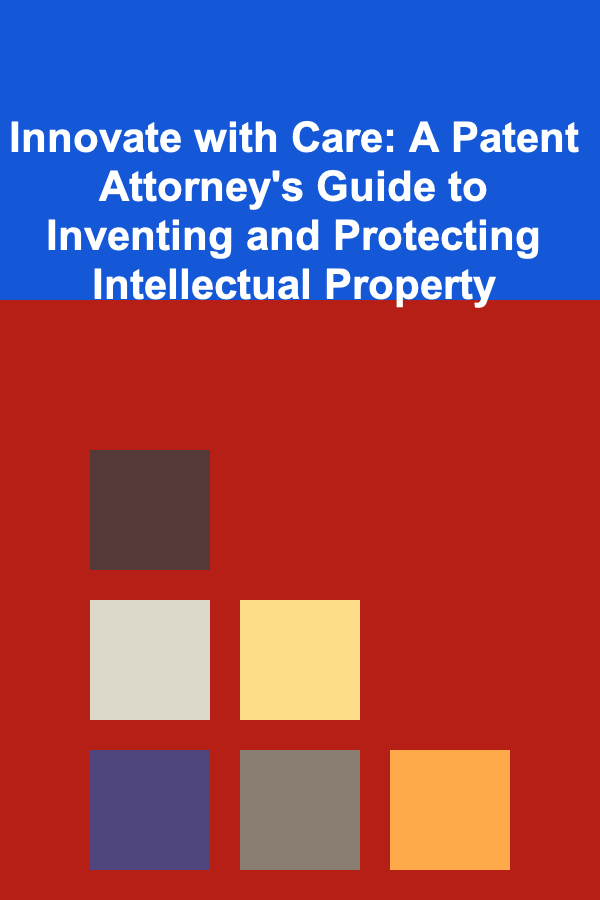
How to Deal with Difficult Tenants and Resolve Conflicts: An Actionable Guide
ebook include PDF & Audio bundle (Micro Guide)
$12.99$6.99
Limited Time Offer! Order within the next:

Dealing with difficult tenants can be one of the most challenging aspects of property management. As a landlord, you might find yourself facing a variety of issues, ranging from late rent payments and property damage to personal conflicts. The way you handle these situations can significantly impact your relationship with your tenants and the overall success of your rental business.
This guide provides actionable steps to effectively manage difficult tenants, resolve conflicts, and create a positive environment for both parties. Whether you're dealing with minor annoyances or more serious issues, the following strategies will help you maintain control of your property while ensuring that you uphold your rights and responsibilities.
Establish Clear Expectations from the Start
The foundation of a positive landlord-tenant relationship starts before the tenant even moves in. Setting clear expectations from the beginning can prevent many problems down the road.
Create a Thorough Lease Agreement
A well-drafted lease agreement is the most important document you have in dealing with tenants. Ensure that your lease clearly outlines the following:
- Rent payment terms: The amount, due date, and consequences for late payments.
- Property maintenance responsibilities: Clarify what is expected from the tenant regarding cleanliness, repairs, and reporting issues.
- House rules: Include policies on noise levels, smoking, pets, and other specific behavior that may be a concern.
- Consequences for violations: Be clear about the steps you'll take if the tenant violates the lease terms (e.g., fines, eviction proceedings).
A clear lease agreement provides a reference point when conflicts arise and helps prevent misunderstandings.
Set Communication Protocols
Clear communication is key in preventing conflicts. At the beginning of the tenancy, establish a preferred communication method (email, phone, text) for non-urgent and urgent issues. Let your tenant know when they can expect a response, and make sure they understand how and when to contact you if something goes wrong.
Being accessible without overcommitting yourself is crucial. Ensure that you communicate expectations about response times for maintenance requests and tenant inquiries.
Stay Calm and Professional
When conflicts arise, the first thing to remember is to stay calm. It can be easy to let emotions take over, especially if the tenant is being particularly difficult. However, maintaining a professional demeanor is essential for resolving the situation effectively.
Avoid Reacting in Anger
If you feel frustrated, take a step back before responding. Reacting in anger can escalate the situation and may make it harder to find a solution. Instead, take a few moments to cool off, assess the situation, and respond in a calm, measured manner.
Use Active Listening
When speaking to a difficult tenant, actively listen to their concerns. By acknowledging their feelings and demonstrating that you are willing to understand their perspective, you'll create a space for productive dialogue. Even if you don't agree with their point of view, validating their feelings can de-escalate the situation.
Use phrases like:
- "I understand this situation is frustrating for you."
- "Let's work together to find a solution."
- "Can you help me understand the issue better?"
Keep Emotions Out of the Discussion
While empathy is important, avoid getting emotionally involved in the dispute. Maintain a neutral tone and focus on the facts of the situation. By being the calm presence in a heated conversation, you'll encourage a more cooperative response from the tenant.
Document Everything
Documentation is your best defense when dealing with difficult tenants. By keeping detailed records of all interactions, issues, and resolutions, you can protect yourself legally and avoid potential disputes.
Keep Written Records
- Conversations: Note every important conversation you have with your tenant. If you speak over the phone, follow up with an email confirming the discussion.
- Maintenance Requests: Keep a log of any maintenance requests made by the tenant, including the date the request was made, how it was addressed, and the time taken to resolve the issue.
- Payments: Maintain detailed records of rent payments, including the amount paid, the due date, and any late fees charged.
Having these records can provide you with the necessary proof in case the situation escalates to legal action, and they also help you keep track of ongoing issues.
Take Photos of Property Condition
When tenants move in and out, take photos of the property's condition. Documenting the state of the rental unit is essential in case there are disagreements about damage or cleanliness later on. This also protects both parties in case of deposit disputes.
Address Issues Promptly
When conflicts arise, it's tempting to put off addressing the problem, especially if it seems small or you don't want to deal with a difficult tenant. However, allowing issues to fester can lead to bigger problems later on.
Respond Quickly to Complaints
If a tenant raises an issue---whether it's related to maintenance, noise, or a neighbor dispute---respond as quickly as possible. Addressing complaints early on prevents escalation and shows your tenant that you take their concerns seriously.
Act Decisively
While it's important to be patient, it's also crucial to act decisively when a conflict requires it. If a tenant is violating the lease agreement, don't procrastinate on issuing a warning or taking appropriate action. Delaying these steps can lead to resentment or allow the issue to worsen.
In cases where a tenant repeatedly violates terms (such as late payments, property damage, or disruptive behavior), make sure to issue formal written warnings as per the lease agreement. If the situation doesn't improve, follow through with eviction proceedings, if necessary.
Offer Solutions and Compromises
Conflict resolution often involves compromise. While some issues may require a firm stance, others may be resolved more effectively through negotiation.
Mediation
If a tenant's complaint stems from a misunderstanding or minor issue, consider mediation. A neutral third party can help both sides find common ground and resolve the issue in a way that satisfies everyone. Mediation is often faster, cheaper, and less stressful than legal action.
Provide Options for Resolution
When faced with a tenant's complaint or issue, offer them a solution that benefits both parties. For instance, if a tenant is late on rent due to financial hardship, consider offering a payment plan or temporary leniency. If the issue is related to property damage, propose a reasonable repair plan or, if applicable, share the cost.
Offering options demonstrates that you are flexible and willing to work with the tenant to resolve the situation, which can improve the relationship and lead to long-term cooperation.
Know When to Stand Firm
While it's important to be open to compromise, there are times when you must stand firm. If a tenant is violating terms of the lease in a way that is detrimental to your property or business (e.g., causing significant damage, violating local laws), it's crucial to enforce your lease and take appropriate action, including possible eviction.
Know Your Legal Rights
Understanding your rights as a landlord is crucial when managing difficult tenants. Each state and local area has its own laws regarding landlord-tenant relationships, eviction procedures, and tenant rights. Familiarize yourself with these laws to ensure you stay within legal boundaries.
Eviction Process
If a conflict reaches the point where eviction is necessary, make sure you follow the legal eviction process in your jurisdiction. This usually involves giving the tenant a formal notice of violation, providing them with an opportunity to rectify the issue, and filing an eviction lawsuit if the problem persists.
Do not attempt to evict a tenant without going through the proper legal channels, as this can lead to costly legal battles and potential liability.
Fair Housing Laws
Ensure that you follow all fair housing laws and avoid discriminatory practices when dealing with tenants. Treat all tenants equally and avoid making decisions based on race, religion, gender, or other protected characteristics.
Learn and Improve
Dealing with difficult tenants is an inevitable part of property management, but every situation offers valuable lessons. Take the time to reflect on each conflict and ask yourself what could have been handled differently.
Evaluate Your Communication Style
If you frequently encounter conflicts, consider evaluating your communication style. Are you being as clear and transparent as possible with your tenants? Are you setting appropriate boundaries and expectations? Sometimes, improving your communication skills can prevent future issues.
Make Necessary Changes
If you notice patterns in tenant behavior, consider revising your lease agreement or house rules to address these issues proactively. For instance, if you frequently encounter noise complaints, include stricter noise regulations in your lease agreement.
Conclusion
Dealing with difficult tenants requires patience, professionalism, and a solid understanding of your rights and responsibilities as a landlord. By establishing clear expectations, maintaining open communication, addressing issues promptly, and knowing when to stand firm, you can resolve conflicts effectively and create a positive rental experience for both you and your tenants.
While conflicts are unavoidable, your ability to manage them with tact and fairness will not only protect your property but also strengthen your reputation as a reliable and responsible landlord.

How to Create a Vintage Recipe Book from Collected Cards
Read More
How to Secure Your Home with Quality Locks and Deadbolts
Read More
How To Take Creative Self-Portraits
Read More
Innovate with Care: A Patent Attorney's Guide to Inventing and Protecting Intellectual Property
Read More
How To Explore Sustainable Crypto Practices
Read More
How to Quilt a Foundation Paper Piecing Block
Read MoreOther Products

How to Create a Vintage Recipe Book from Collected Cards
Read More
How to Secure Your Home with Quality Locks and Deadbolts
Read More
How To Take Creative Self-Portraits
Read More
Innovate with Care: A Patent Attorney's Guide to Inventing and Protecting Intellectual Property
Read More
How To Explore Sustainable Crypto Practices
Read More